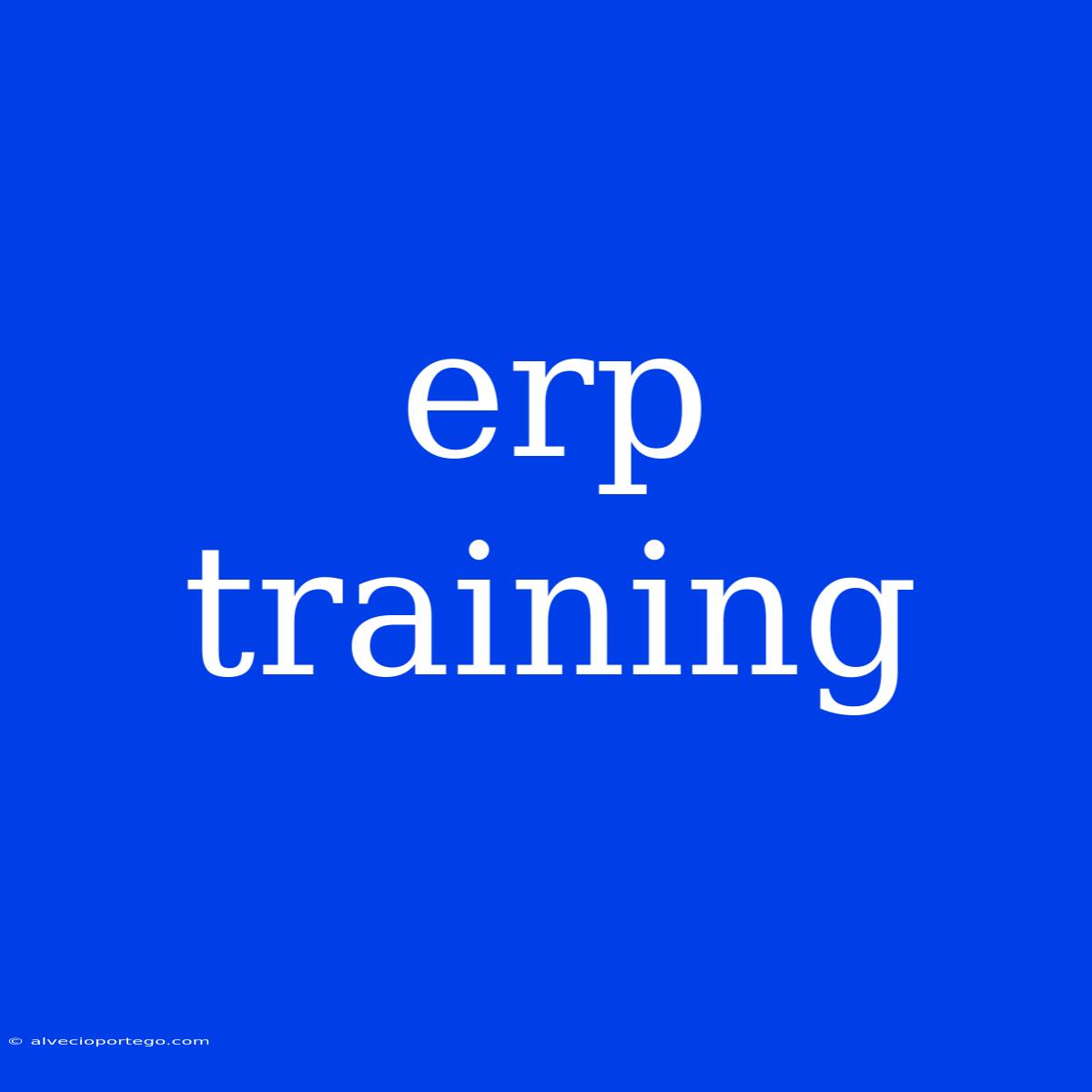The Importance of ERP Training: Unlocking the Power of Your System
An ERP (Enterprise Resource Planning) system is a powerful tool that can streamline your business processes, improve efficiency, and boost productivity. But, without proper training, its potential remains untapped. This article explores the crucial role of ERP training and how it empowers your team to maximize its benefits.
Why ERP Training is Essential
- Enhanced User Adoption: Effective training fosters user confidence and encourages active participation. It demystifies the system, equipping employees with the knowledge and skills to confidently use it daily.
- Increased Productivity: Training helps users navigate the system effectively, saving time and effort on tasks. By understanding workflows and functionalities, employees can complete tasks more efficiently.
- Reduced Errors: A well-trained team is less likely to make errors. Understanding data entry procedures, system limitations, and best practices minimizes mistakes, contributing to accurate data and improved decision-making.
- Improved Data Accuracy: Training emphasizes the importance of data quality, ensuring users understand how their inputs affect the overall system's accuracy and reliability.
- Reduced Support Costs: By equipping employees with the necessary knowledge, companies reduce reliance on external support for basic functionalities, saving costs in the long run.
- Maximized ROI: A fully trained workforce unlocks the full potential of your ERP investment, generating a faster return on investment and maximizing its benefits for your business.
Key Components of Effective ERP Training
- Needs Assessment: Begin with a thorough needs assessment to identify specific training requirements based on roles, responsibilities, and desired outcomes.
- Tailored Curriculum: Develop a training program that is tailored to the specific needs of your team, covering both general system knowledge and role-specific functionalities.
- Interactive Learning: Use a blend of methods, including interactive simulations, hands-on exercises, and group discussions, to create a stimulating and engaging learning environment.
- On-the-Job Support: Provide ongoing support through dedicated help desks, user manuals, and knowledge bases to address user queries and provide assistance when needed.
- Regular Refreshers: Offer periodic refresher courses to maintain user competency and keep them updated on new features and system enhancements.
Types of ERP Training
- Classroom Training: Traditional classroom training provides structured learning with instructor-led sessions and hands-on practice.
- Online Training: E-learning platforms offer flexible and accessible training modules, allowing users to learn at their own pace.
- On-the-Job Training: Practical training provides real-time experience on the job, allowing users to learn by doing under the guidance of experienced colleagues.
Choosing the Right ERP Training Partner
- Expertise: Seek a training partner with extensive knowledge and experience in the specific ERP system you are using.
- Customization: Choose a provider that offers tailored training solutions to address your unique business needs and challenges.
- Experience: Look for a training partner with a proven track record of success in delivering high-quality training programs.
By investing in ERP training, you empower your team to fully utilize the potential of your ERP system. This investment not only enhances employee skills and productivity but also drives overall business efficiency and profitability.

